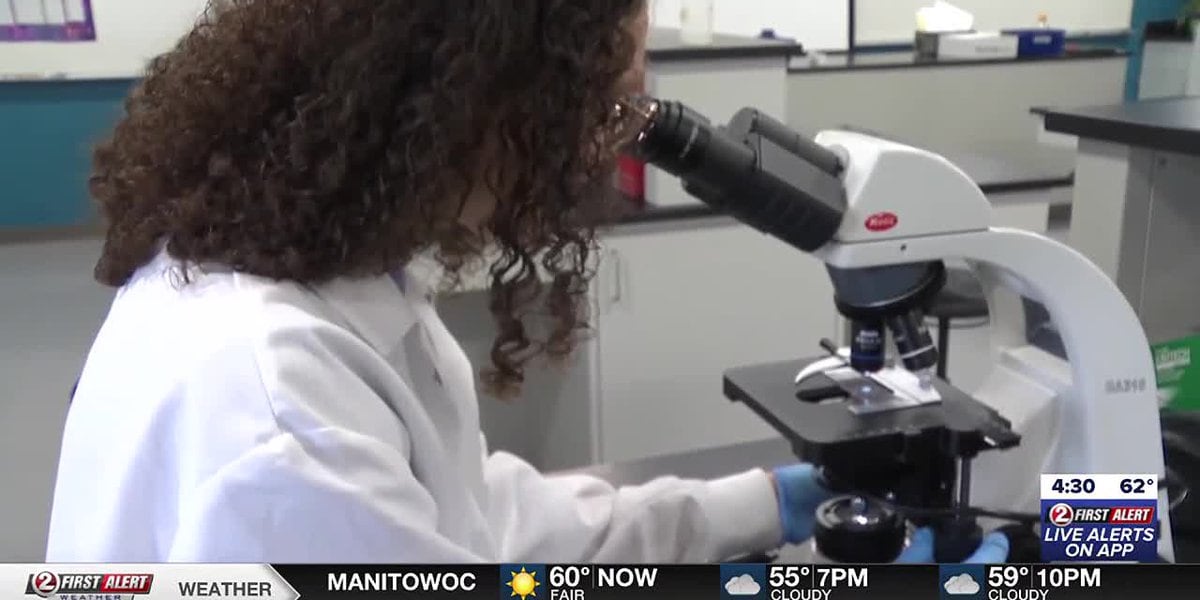Infection
Health experts urge proper use of antibiotics amidst awareness week
GREEN BAY, Wis. (WBAY) – Antibiotic resistance is a growing world health crisis that could turn simple infections into deadly ones.
We first alerted you to a major announcement last week where students at NWTC found a bacteria at Pamperin Park that could lead to the creation of new antibiotics.
Medical experts say if we don’t get a handle on antibiotics right now, we could be looking at more “superbugs” in the future that can’t be treated.
A salmonella outbreak is forcing many Wisconsinites to check their fridge for pre-cut cantaloupe and pineapple sold at Aldi’s last month.
So far, four people have reported being sick in Wisconsin with more than 40 people throughout the U.S, including 17 hospitalizations.
Salmonella is a bacterial infection. While most people recover without any treatment, sometimes the bacteria make its way into the bloodstream and requires antibiotics.
It’s a necessary medication to clear up the infection but there’s a catch that health experts want people to be aware of during U.S. Antibiotic Awareness Week.
“They’re a very special kind of medication that diminishes the more you use them. We kind of have to preserve them as much as we can,” said Dr. Michael Pulia, emergency medicine physician at UW Health.
Dr. Pulia said antibiotics become less effective at treating bacterial infections over time because the bacteria adapt and mutate.
If you’ve ever been treated for a bacterial infection, such as strep throat or pneumonia, you’re probably familiar with the term “Z-Pak.”
At one point it was the most prescribed antibiotic in the U.S.
Dr. Pulia said that has changed because of antibiotic resistance.
“It’s just a sort of a ticking time clock of as far as when they’ll sort of figure out a way to get around that antibiotic. It’s just a natural part of the evolution of bacteria, which is why we always have to invent new ones. You know, we always have to be kind of bring new ones to the front,” said Dr. Pulia.
Students at NWTC just received national recognition for their part in the search for new antibiotics.
Students recently found a bacteria in soil that could potentially lead to a new set of antibiotics to fight serious bacterial infections.
“We’re glad that we were able to contribute this, and say ‘There’s a candidate look at this really closely,’ and go on with that because we haven’t had a new class of antibiotics since the early 90s that have been discovered,” said Angelo Kolokithas, Director Of Biology Program, NWTC.
Professor Kolokithas said we can discover new antibiotics all day, but unless we change society’s mindset on how to properly use them, the cycle of misuse and overuse will continue.
“It’s something we all are responsible for, you know, everybody has to be a good steward of these precious resources that we have which is the antibiotics and we should be really thoughtful when we use them,” said Dr. Pulia.
Dr. Pulia said patients should be empowered to ask questions when prescribed antibiotics, like dosage and duration.
It’s also a good reminder to take the prescription in its entirety. If you don’t it may not work for your next infection.
“That gives bacteria billions of opportunities to mutate and then they try to take it again and it doesn’t work because the bacteria is now resistant,” said Kolokithas.
According to the CDC, 35,000 people die in the U.S. from antibiotic resistant infections every year. A grim reminder about the importance of following your doctors advice.
Copyright 2023 WBAY. All rights reserved.

